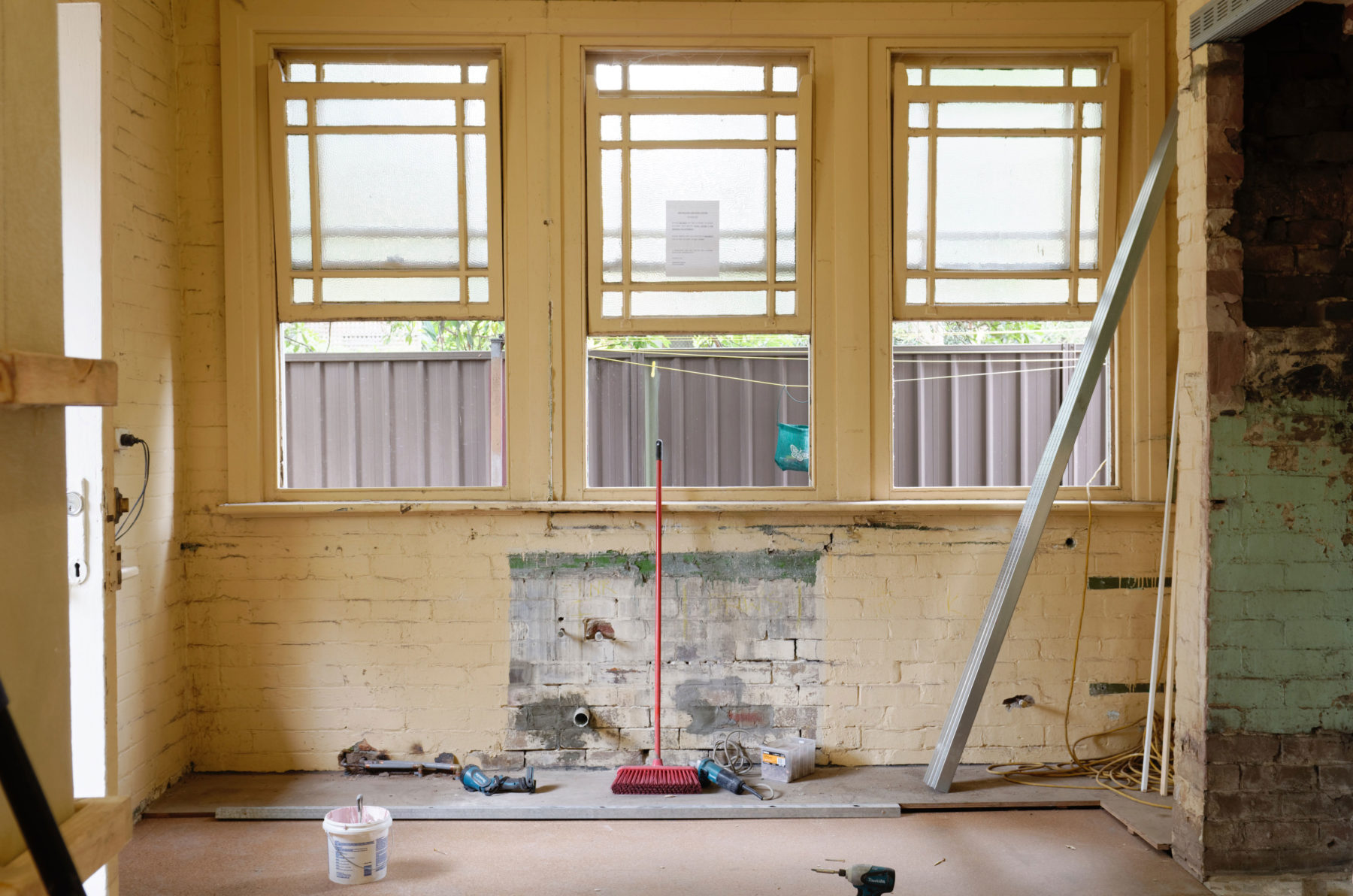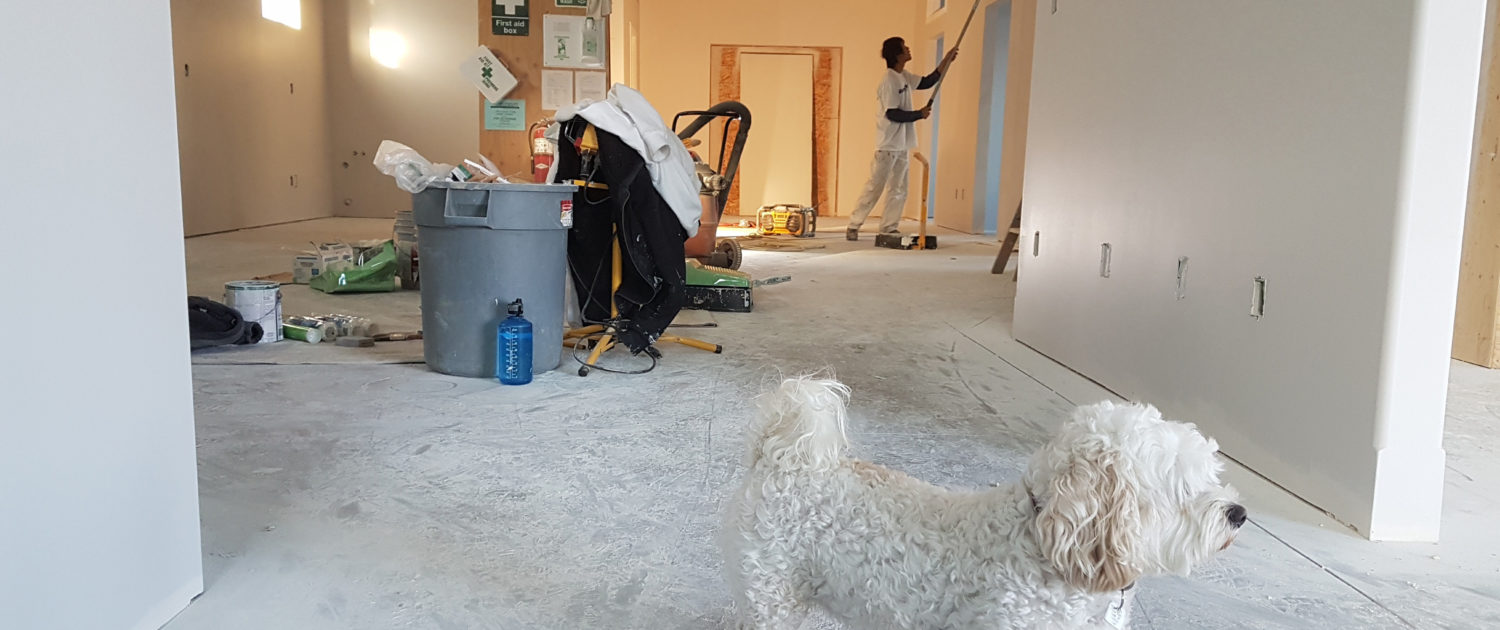Whether you just bought into your first co-op or you’ve been living in one for years, renovations are sometimes a must. But living in a co-op building comes with a list of rules and guidelines that could put a damper on your dream kitchen.
So, before you grab a hammer or call a contractor, make sure that renovating your New York city co-op is okay with your building’s board. Here’s what you need to know.
Can I renovate my NYC co-op?
The first step to answering this question lies in your proprietary lease. Read it carefully and you’ll be sure to find a few guidelines to help. While each building will have unique policies, here are some general alternation guidelines regarding co-op association renovation approval.

Approval needed
- Removing or adding walls – Any change to the layout of your unit will require approval. Even if the removal of the wall between your kitchen and living space seems simple, speak with your board before starting.
- Electrical or plumbing updates – If it involves wires or pipes, your project most likely needs approval. The more hidden under the floor, in the ceiling, or within the walls, the harder it will be to gain approval.
- Full updates – If you’re completely updating your kitchen or bath, expect to go through a lengthy approval process. You’ll need to provide every detail to the board. You’ll also probably face a deadline that could leave you paying daily fines if your contractor misses it.
No approval needed
- Painting – Go ahead and pick out your paint colors but still speak to your building’s manager before you open a can. While this normally doesn’t need approval, it’s best to double check.
- Small cosmetic changes – Switching out faucets or showerheads normally doesn’t need approval. But if your building is LEED certified, make sure the new fixtures meet the standard requirements.
- Adding art – Many co-op owners assume adding wall art to their unit is a simple change, but make sure to ask before you put holes in the walls of your unit.
How to get approval
You don’t have to jump through too many hoops for a co-op association renovation approval, but it could take some time. First, contact your co-op’s managing agent. You don’t need to head to the board just yet. They should be able to provide you with your building’s alteration agreement if you don’t have a current one, as they’re typically updated annually.
Once you have your building’s list of renovations that require approval, see where yours falls. If yours requires approval, write a formal letter to the board outlining your proposed work.
Inquire if consent is required and if there are any details you need to provide. Most buildings require contractors be licensed and insured. They might also have guidelines regarding the time of year renovations can be made and if there are any associated fees with your project.
If the board needs more information, provide it as quickly as possible. If you’re following your building’s alteration agreement factors, your project should be approved.

But if it’s not, you might have to put that dream kitchen on hold until either the rules change or you’re able to meet the board’s demands.
Renovation tips
There are a few things you can do to make renovating your New York City co-op a bit easier.
Speak about renovations before buying your co-op
If you’re looking at a co-op that will need some updating, submit renovation planes with your sales application if the board allows.
Elaine from Halstead says, “Before purchasing a unit in a co-op, make sure you know exactly what the building policies are regarding renovations. Renovation policies for every co-op building varies and the red-tape involved can be a bit unreasonable.”
Seek approval before doing anything
This can’t be stressed enough. Even if you believe you don’t need approval for a quick renovation, taking the few minutes to speak with the building manager can save you a lot of headaches.
But if you know you’ll need board approval for a more expansive project, seek a contractor first who can help you provide proper documentation and plans to the board for approval.
Find the right contractor
Think you can get by without a contractor? “After being in real estate sales for 11 years, I’ve never seen a DIY project that was executed well,” says Elaine. “Always hire a professional. Always!”
Don’t hire the first contractor that comes your way though. Ask for reviews, referrals, and several quotes before deciding.
Have a plan and a backup plan
If there’s one guarantee in renovation, it’s that something will go wrong. Whether it’s minor or major is up in the air. That’s why it helps to have a planned-out design with a few backup plans as well. Have less expensive options if your budget gets out or control or have lodging set up elsewhere in case you miss the deadline and you’re without a bathroom or kitchen for several days.
Increase the value of your co-op without expensive renovations
Whether your project has been denied or you just want a few ideas to spruce your place up, here are some inexpensive and minimal ways to improve your co-op today.
- Rugs – If your carpets make you wonder what type of science experiments are going on beneath their surface, investing in rugs in an inexpensive yet effective way to renovate your space. Play with patterns and textures for a unique look.
- Command strips – Some co-ops won’t allow you to put any holes in the walls, including nails and thumb tacks. But don’t let this hold you back from decorating. Use Command strips, which enable you to place hooks on the walls without using a hammer. When you’re ready to remove the hook, all you have to do is pull the adhesive out from the plastic frame, revealing the clean and undamaged wall behind it.
- Crown molding – Crown molding is an effortless way to add charm and character to your NYC co-op. It’s a quick and affordable project that can transform your co-op and provide a great return.
- Floors – A floor renovation can get expensive but if you’re only replacing bathroom or kitchen tile, you should be able to keep your budget on track. New floors can update even the oldest units in just a few days.
Renovations to avoid
There are a few things you shouldn’t do when renovating your New York City co-op, even if a project is approved. When thinking of your return on your investment, James, a Yoreevo real estate agent, says that some renovations are just for your happiness and not your equity.
“Speaking from experience, windows. I didn’t even think about them when I bought and my first winter, there were drafts all over on top of paper thin glass (street noise came right through). I replaced them, but it cost me almost $20,000. It’s been worth it for me because I’ve enjoyed them for four years and counting but there’s no way anyone will care about them when I sell.”
You should also consider your future goals. How long do you see yourself living in your co-op for?
“I would caution that an owner should only take-on an extensive renovation if they plan to own the apartment for more than 5 years,” says Elaine. “If only minor cosmetic touches are needed, then it’s worth doing the touch-ups! These small improvements make a significant impact on the overall value of your apartment. Renovating an apartment is a smart way to put equity back into one of the most important investments of your life.”
If you’re ever uncertain about whether a renovation requires board approval, it’s always best to clarify with the board. The last thing you want is to be halfway through a project only to have it halted.
The board isn’t out to stop you from getting your dream kitchen. It’s in their best interests that as many units as possible are upgraded and functional. But if you want to play by the rules, speak to your board about your next project before getting started.




